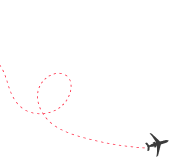IELTS and Duolingo are two well-known language assessment tests that evaluate a candidate’s ability in the English language. Students who are thinking of going abroad for studies must choose the right English proficiency test. As it will significantly impact your goals whether you are going abroad for studies or a job. Thus, in this blog, we will discuss everything on Duolingo vs IELTS and gain a proper understanding of both exams. So let’s get started with the blog.

Table of Contents
IELTS and Duolingo are the two most common exams given by test-takers who want to study abroad. However, most of the students are not aware of both types of tests. Thus, the next part of this section will let you know about IELTS and Duolingo exams.
IELTS stands for the International English Language Testing System. It is a test that assesses the candidate’s ability on how well he can communicate in English in four areas: Listening, Reading, Writing, and Speaking. The IELTS exam is available in two formats: Academic (for studying) and General Training (for working & immigration). Moreover, the IELTS exam fee 2026 for students in India is INR 17,000.
The Duolingo English Test (DET) is an English language proficiency test that assesses a person’s reading, writing, listening, and speaking skills. Duolingo English Test is often used as another option to traditional language tests like IELTS or TOEFL. Moreover, the Duolingo score validity is for 2 years.
The above section provides a complete overview of both exams. In our next section, we will look in detail at the differences between the Duolingo English Test (DET) and the IELTS exam.
By reading the above sections you must have an understanding of what the DET and IELTS exam means. But still, many of you can be confused regarding these two tests. Thus, in this section, we have provided the image that will let you know about the difference between IELTS and Duolingo. Let’s have a look at the given image.

The above-given image explains the difference between IELTS and Duolingo with the required details. Now our next section talks about the eligibility criteria for IELTS and Duolingo both.
Also Read: CELPIP vs IELTS
Test-takers need to know about the eligibility criteria for both exams. Thus, in this section, we will look at the Duolingo vs IELTS basic eligibility criteria so that you know that which factors you need to consider before appearing for the exam.
This section covers the basic eligibility criteria for both exams. The next section covers the format of both exams which is vital for students to know before appearing in the exam.
The very first difference between Duolingo vs IELTS exams is their formats. In this section, we have broken down the format for both exams. By knowing the format or structure candidates will have a better understanding.
| Sections | No. of Questions | Time Duration |
|---|---|---|
| Listening | 40 | 30 minutes + 10 minutes transfer |
| Reading | 40 | 60 minutes (including transfer) |
| Writing | 2 tasks | 60 minutes |
| Speaking | 3 rounds | 11-14 minutes |
| Sections | Format | Time Duration |
|---|---|---|
| Introduction and Onboarding | Setup, ID Verification, and test rules review. | 5 minutes |
| Adaptive Test | Reading, Writing, Listening, and Speaking skills are assessed with adaptive difficulty questions | 45 minutes |
| Video Interview | Candidates must respond to the prompts with recorded answers. It should be 1-3 minute speaking response and 3-5 minute writing response. | 10 minutes |
The above-given table shows the format of IELTS vs Duolingo exams. In the next section, you will get to know about the exam syllabus or curriculum that both tests contain.
The above section gives a list of the format or structure for both exams. In this section, we will discuss in detail the syllabus for both Duolingo and IELTS. However, the IELTS exam pattern has been structured into four sections that are: Listening, Reading, Writing, and Speaking. On the other hand, the Duolingo exam has been formulated into adaptive tests and video interviews. But this is not enough to know for the students. Thus, the table covers the syllabus and types of questions asked in both tests. So let’s get familiar with Duolingo vs IELTS exam syllabus.
| Sections | Duolingo | IELTS |
|---|---|---|
| Listening | Listening skills are tested throughout the several question types, and identifying the wrong words or phrases | This involves listening to the recordings of English speakers and answering questions based on them |
| Reading | This section involves reading and understanding the passages, by finding the missing words | The IELTS reading has passages and there are multiple questions such as short-answer, table completion, summary completion, true or false, labelling diagram and much more. |
| Writing | This section includes the tasks like describing a photograph, writing a response, and read then writing. | Includes the two tasks: a short essay based on a visual data and a formal essay in response to a given topic. Questions are like line graph, bar graph, pie chart etc. |
| Speaking | Candidates need to speak on the two topics and should speak about 1-3 minutes. | In IELTS, there are three rounds. The first is a personal introduction, the second question consists of a cue card or a topic, and the third one is a further discussion related to the topic |
The above-given table explains the IELTS vs Duolingo exam syllabus and the type of questions it contains. In our next section, you will find out about the scoring range and proficiency level for both exams.
Must Read: IELTS Reading Question Types
Comparing the required proficiency levels of IELTS vs Duolingo involves an understanding of scoring systems and difficulty. The IELTS scores vary from 0 (Non-user) to 9 (Expert), while Duolingo’s scoring ranges from 10 (Basic) to 160 (Expert). Moreover, for a better understanding, the table depicts the Duolingo vs IELTS score comparison with their required proficiency levels. Let’s have a look.
| Proficiency Level | IELTS | Duolingo |
|---|---|---|
| Expert | 9.0 | 155-160 |
| Very Good | 8.5 | 145-150 |
| Very Good | 8.0 | 135-140 |
| Good | 7.5 | 125-130 |
| Good | 7.0 | 115-120 |
| Competent | 6.5 | 105-110 |
| Competent | 6.0 | 95-100 |
| Modest | 5.5 | 85-90 |
| Modest | 5.0 | 75-80 |
| Limited | 4.5 | 65-70 |
| Extremely Limited | 0 to 4 | 10-60 |
In the above table, we discussed the IELTS proficiency level in comparison with the Duolingo scores. Now our last section talks about the popular universities accepting the IELTS and Duolingo exams.
While selecting between Duolingo vs IELTS students must keep in mind which universities accept these tests. Also, they should look for the score requirement and prepare accordingly for the exam. Thus, in this section, we have provided the list of the best universities accepting IELTS and Duolingo tests with their required scores.
| Universities | Accepted IELTS Score | Accepted Duolingo Score |
|---|---|---|
| University College London | 6.5 or higher | Minimum 135 |
| The University of South Alabama | 6.5 or higher | 105 or higher |
| The University of Oxford | 7.0 | 120 |
| Stanford University | 7.0 | 110 |
| The University of Toronto | 6.5 | 120 |
| The University of Sydney | 6.5 | 115 |
| Harvard University | 7.5 | 125 |
| The University of Edinburgh | 6.5 | 115 |
| Dalhousie University | 6.5 or higher | 115 or higher |
| Massachusetts Institute of Technology | 7.0 | 120 |
Also Read:
To sum up, we discussed Duolingo vs IELTS and understood the differences between both tests. Further, we looked at the eligibility, format, syllabus, and score comparison for both exams. However, it is most important for students to analyse the advantages and disadvantages of both exams before moving abroad. And still, if you’re confused and want to know more then connect with Gradding.com! Here you will know in detail about the Duolingo or IELTS exam pattern, including all major things. Also, you can take our free IELTS mock test of all the sections.
1. Which test is easier, the Duolingo or IELTS test?
Duolingo is considered to be an easier test, as compared to the IELTS exam. In comparison between Duolingo vs IELTS, the Duolingo test focuses on basic skills such as grammar and vocabulary and does not need a deep understanding of the language. On the other side, the IELTS exam needs an in-depth knowledge of the language.
2. Can I check my IELTS result online?
You can check IELTS result by logging in to the Test Taker Portal. The IELTS results remain online for 28 days, and if you have taken IELTS on paper, then you will be able to see your results after 13 days from the test date.
3. Which is Best for Canada IELTS or Duolingo?
IELTS is accepted at more than 10,000 institutions, universities, and schools in 140 countries. As a comparison, Duolingo is accepted in the five countries that are the UK, USA, Australia, Canada, and New Zealand.
4. Is IELTS valid for 3 years now?
No, the standard IELTS score validity period is two years from the date of the test. There is no official extension to the three years.

We are available in :
BangaloreAhmedabadJaipurHyderabadKeralaPuneChandigarhMumbaiGurgaonChennaiKolkataTrivandrumNoidaKochiCalicutKottayamKollamThrissurIndoreUdaipurdisclaimer:logos and other registered trademarks of universities used on this platform are held by their respective owners. Gradding does not claim ownership or association on them, and their use is purely for informational and illustrative purposes.



